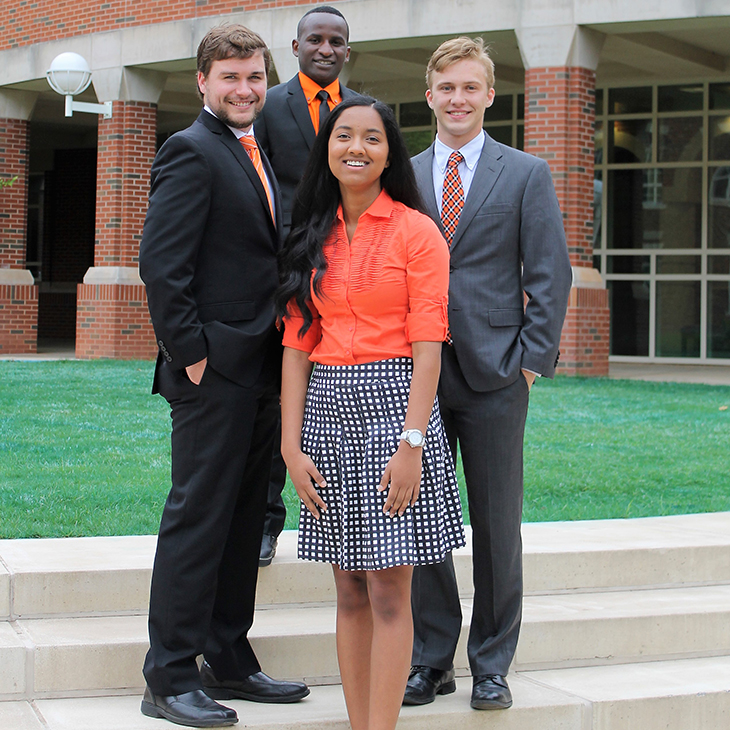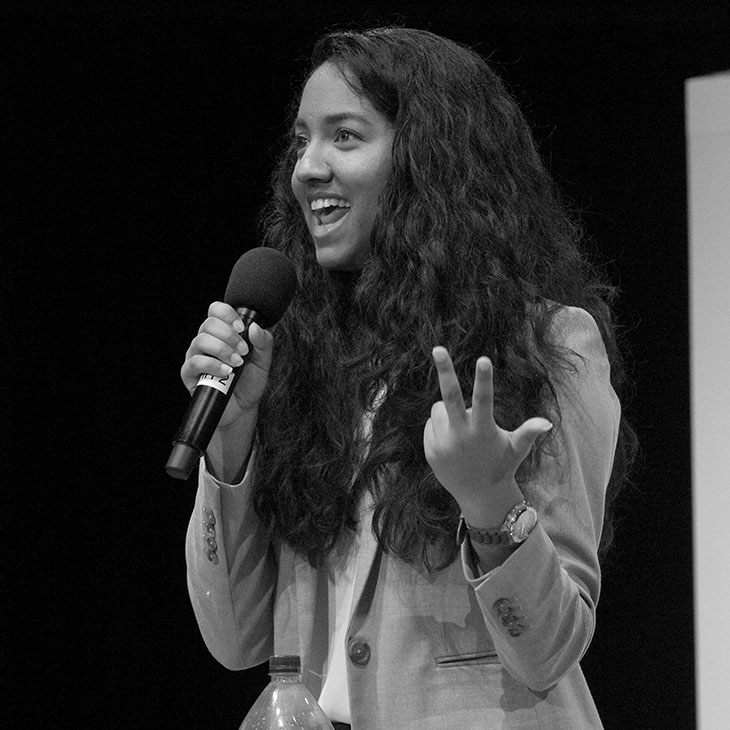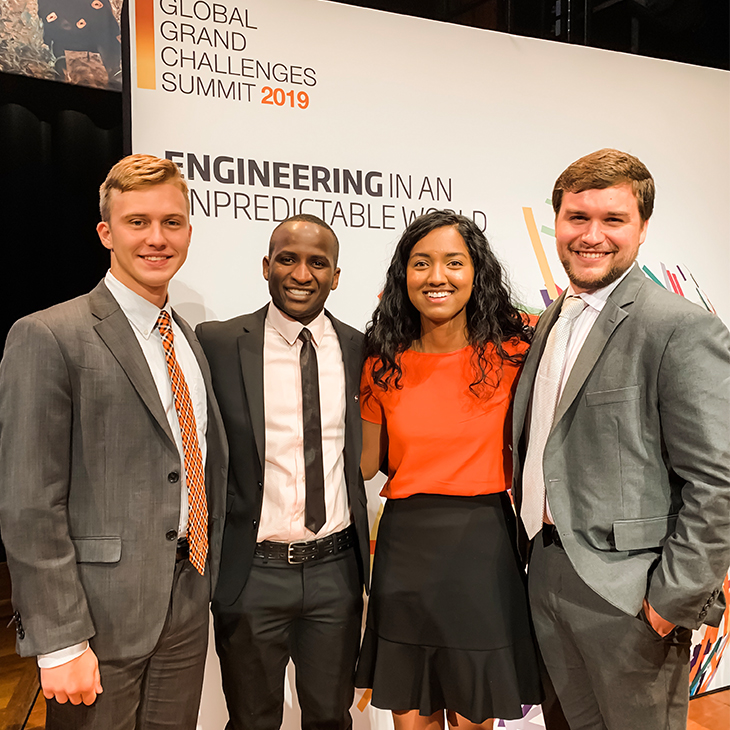
Tackling a Grand Challenge
Monday, September 16, 2019
For the first time, a group of engineering students in Oklahoma State University’s College of Engineering, Architecture and Technology will represent the United States in a business plan competition at the 2019 Global Grand Challenges Summit in London.
The team is tackling the challenge of sustaining a global population of 10 billion,
which the United Nations says will be reached by 2050. The OSU proposal calls for
the advanced
integration of technology into agriculture.
The team includes Christian Griffith, mechanical and aerospace engineering; Muwanika Jdiobe, mechanical and aerospace engineering; Jackson Moore, mechanical and aerospace engineering; and Angela Peter, chemical engineering.
Their idea is to utilize sensors underneath and on the surface of the ground, along with additional sensors on unmanned aerial vehicles to collect data from the air. This will allow them to analyze the soil and help farmers know where they need to fertilize and what crops would be best suited to that specific area, so that farmers could grow more crops at a lower cost. Crops can be too expensive to grow for many in underdeveloped countries.
OSU has one of the leading agricultural programs in the nation and conducts extensive research in this area. The team has access to that research and knowledge as well as opportunities for collaborating with some of the top minds in the field, empowering them to tackle the challenge effectively.
Team members worked together, each handling different aspects of the project. Griffith focused on data analytics, Moore and Jdiobe focused on the sensors, while Peter focused on the customer discovery side of it, interviewing farmers from India and Uganda.
“Engineering problems are not just scientific problems; they are people problems,”
Griffith said. “There were a lot more personable aspects than I expected out of what
I thought was
solely a research and business competition. It showed that we
have the power to change lives.”

“We focused on how using unmanned aerial vehicles could be used to increase yield
in the fields of Uganda.” Peter said. “This program is all about innovation, engineering
and entrepreneurship. The work is very interdisciplinary in nature
and involves making something new from what we have learned
in our core courses. This project is greater in scope than our
normal class work, and being able to use what I have learned and
applying it in the real world has been very rewarding. Learning
and understanding the struggles of farmers in Uganda has helped us gain global awareness
of struggles that exist outside of our personal spheres. I have grown in my collaborative
and leadership skills, and developed my interpersonal communication skills. It has
been very exciting to be the first team from OSU to make it this far.”
Moore saw this as an opportunity to unite two interests.
“I did research as a freshman research scholar and have a minor in entrepreneurship so the GCSP gives me the opportunity to combine the two interests,” Moore said. “I’ve grown in my public speaking experience, and I have been able to learn how to balance jobs and personalities with a group.”
Amanda Williams, coordinator of CEAT scholarships, felt this project had special meaning for Jdiobe.
“Muwanika is from Uganda,” Williams said. "He was telling
us stories about when he was a child his family couldn’t afford to send food for lunches
while attending school. It really does affect not just their health, but also their
knowledge and learning abilities. Being able to solve this issue was very personal
to him.”
"It is not just about the competition. This is about finding solutions to the challenges threatening the existence of humanity."
Jdiobe said being a part of the competition is great, but, for him, it’s about so
much more. “This is about finding solutions to the challenges threatening the existence
of humanity, with the increasing world population and few resources, humanity is at
stake, and therefore, it is upon all of us to make this world
sustainable and better for all generations.”

PGA Tour star Rickie Fowler fully funds the Grand Challenges Scholarship Program in CEAT. While the golfer was not an engineering student, he has always loved tinkering and the technology side of things. He wanted to support students with a similar mindset.
CEAT Dean Paul Tikalsky presented the program to Fowler’s agent, noting “the students in a program like this would be like-minded because they’re very hands on with their research.” Fowler loved the idea that it was an extra component outside of the classroom and not just a scholarship — he is giving an experience, as well as money.
“The Grand Challenges were created in 2009, and OSU submitted a proposal to join in 2016,” Williams said. “As soon as a student applies to be a part of the program and is accepted, they are expected to continue until they graduate. Most students will have to start part of the program components before they apply. Having the program here at OSU helps us offer more opportunities for the students. They can focus a little more on what their passions are.”
